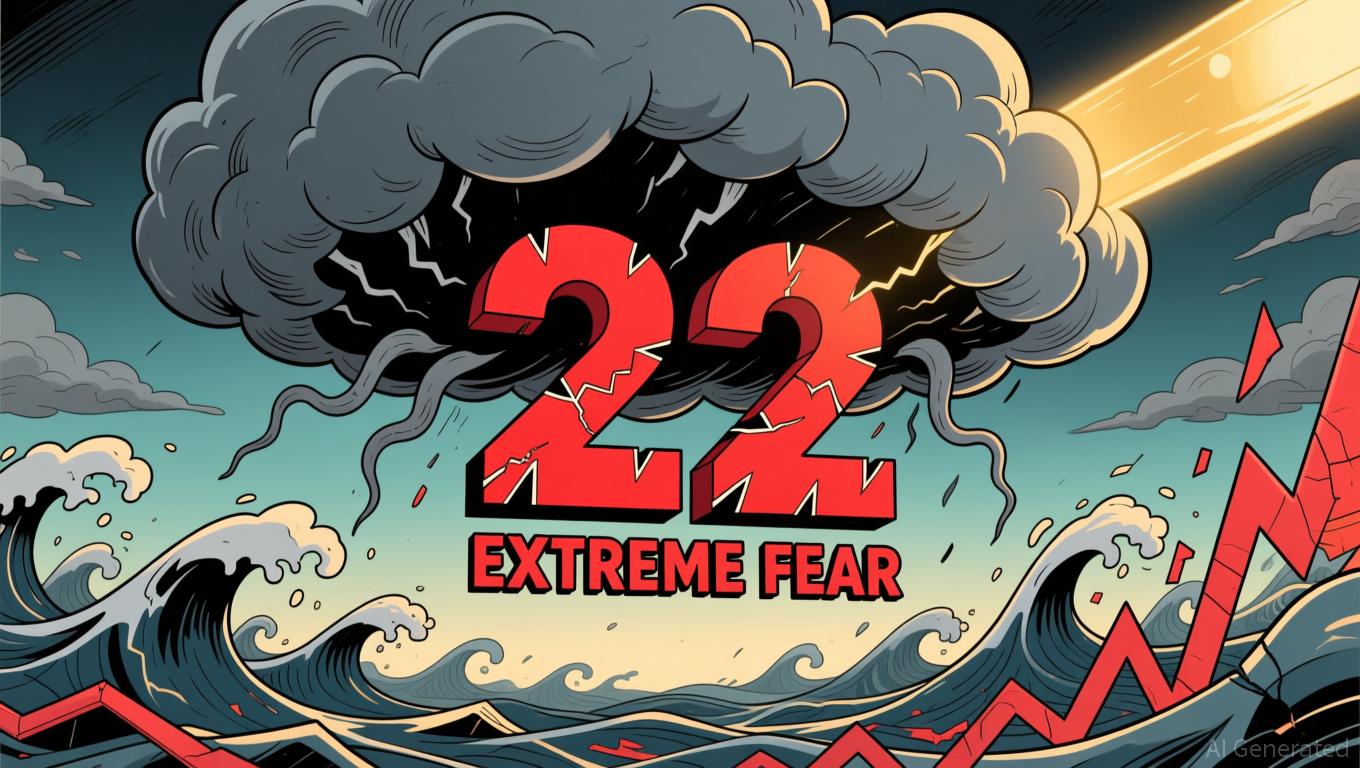COAI Token Fraud: An Urgent Reminder for Developing Token Markets and the Importance of Thorough Investor Research
- COAI token's 2025 collapse exposed systemic risks in token economies, highlighting governance failures and regulatory gaps. - Weak oversight in emerging markets enables crypto fraud, with Southeast Asia reporting $10B annual losses from organized scams. - U.S. CLARITY Act's ambiguity over AI tokens creates legal gray areas, while MiCAR and GENIUS Act aim to clarify global regulatory frameworks. - Investors must adopt blockchain forensics and multi-layer due diligence to address vulnerabilities in tokenom
Systemic Risks in Emerging Token Economies
The downfall of COAI was not an isolated incident, but rather a reflection of widespread structural issues within token economies, especially in developing regions.
Technical flaws only add to these dangers.
Southeast Asia has become a center for crypto-related scams, with organized crime groups in Myanmar and Cambodia reportedly stealing around $10 billion each year. These schemes, which often use advanced social engineering and operate through unregulated exchanges, take advantage of weak enforcement and regulatory gaps. The case of She Zhijiang, a notorious scammer based in Myanmar, shows that even when individual fraud rings are dismantled, broader problems like complicit ISPs and lax regulation persist. These issues highlight the need for global cooperation to close regulatory loopholes and enforce stricter checks on international transactions.
Investor Due Diligence: A New Imperative
The COAI crisis has compelled investors to rethink their approach to vetting token investments.
Regulators such as FINRA have stressed the necessity of thorough due diligence, especially for token offerings that are not registered.
Yet, due diligence goes beyond technical checks. It requires a shift toward greater openness and responsibility. Projects like ZEUSNFTX, which seek to restore confidence in DeFi and NFT markets, demonstrate the promise of scalable blockchain technology—but only if they implement strong governance and compliance practices. Investors should also focus on anti-money laundering (AML) procedures, including global sanctions checks and regular reviews of Politically Exposed Persons (PEP).
The Path Forward: Regulatory Clarity and Global Coordination
The COAI token scandal has exposed the shortcomings of existing regulatory systems.
For investors, the takeaway is unmistakable: due diligence must expand beyond standard financial reviews to include blockchain analysis, real-time transaction tracking, and smart contract evaluations. As the COAI episode shows, even advanced projects can unravel due to governance lapses and regulatory uncertainty.
Ultimately, the sustainability of token economies hinges on striking the right balance between innovation and regulation. Without consistent rules and diligent investor scrutiny, another COAI-like collapse is not a matter of if, but when.
Disclaimer: The content of this article solely reflects the author's opinion and does not represent the platform in any capacity. This article is not intended to serve as a reference for making investment decisions.
You may also like
Switzerland Postpones Crypto Tax Data Exchange to Meet Technological and International Requirements
- Switzerland delays crypto tax data sharing until 2027, aligning with global regulatory reevaluations amid evolving tech and market dynamics. - SGS acquires Australia's Information Quality to boost digital revenue, reflecting Swiss firms' expansion into tech-driven compliance solutions. - Canada's Alberta oil sands policy shift highlights governments prioritizing economic growth over strict climate regulations, mirroring Switzerland's approach. - BridgeBio's precision medicine and Aires' EMF solutions dem

Switzerland's Focus on Privacy Conflicts with International Efforts for Crypto Taxation
- Switzerland delays crypto tax data sharing with international partners until 2027, contrasting with global regulatory efforts to close offshore loopholes. - The U.S. advances implementation of the OECD's CARF framework, aiming to automate reporting on foreign crypto accounts by 2029. - CARF requires foreign exchanges to report U.S. account details, mirroring traditional tax standards and targeting crypto tax evasion. - Switzerland's privacy-focused stance highlights tensions between financial confidentia

Zcash News Update: Reliance Shifts Entirely to Zcash, Citing Privacy and Regulatory Alignment
- Reliance Global Group, a Nasdaq-listed fintech firm, shifted its entire crypto portfolio to Zcash (ZEC), divesting Bitcoin , Ethereum , and other major coins. - The strategic pivot, announced November 25, prioritizes Zcash's privacy-focused zk-SNARKs technology for institutional compliance and selective data disclosure. - Zcash's 1,200% 90-day price surge and Grayscale's ETF filing highlight growing institutional interest in privacy-centric assets. - The move reflects broader crypto industry trends towar
Bitcoin News Update: Bitcoin Fear Index Drops to 22 While Investors Look for Signs of Market Rebound
- Bitcoin Fear & Greed Index rose to 22 from 20, indicating slight easing of extreme fear but persistent bearish sentiment. - Bitcoin stabilized near $87,000 after hitting $80,553, yet remains below key resistance levels amid $3.5B ETF outflows. - Structural factors like leverage and liquidations drive selloffs, with ETF redemptions correlating to 3.4% price drops per $1B outflow. - Analysts note oversold technical indicators and waning retail capitulation as potential inflection points for near-term rebou
